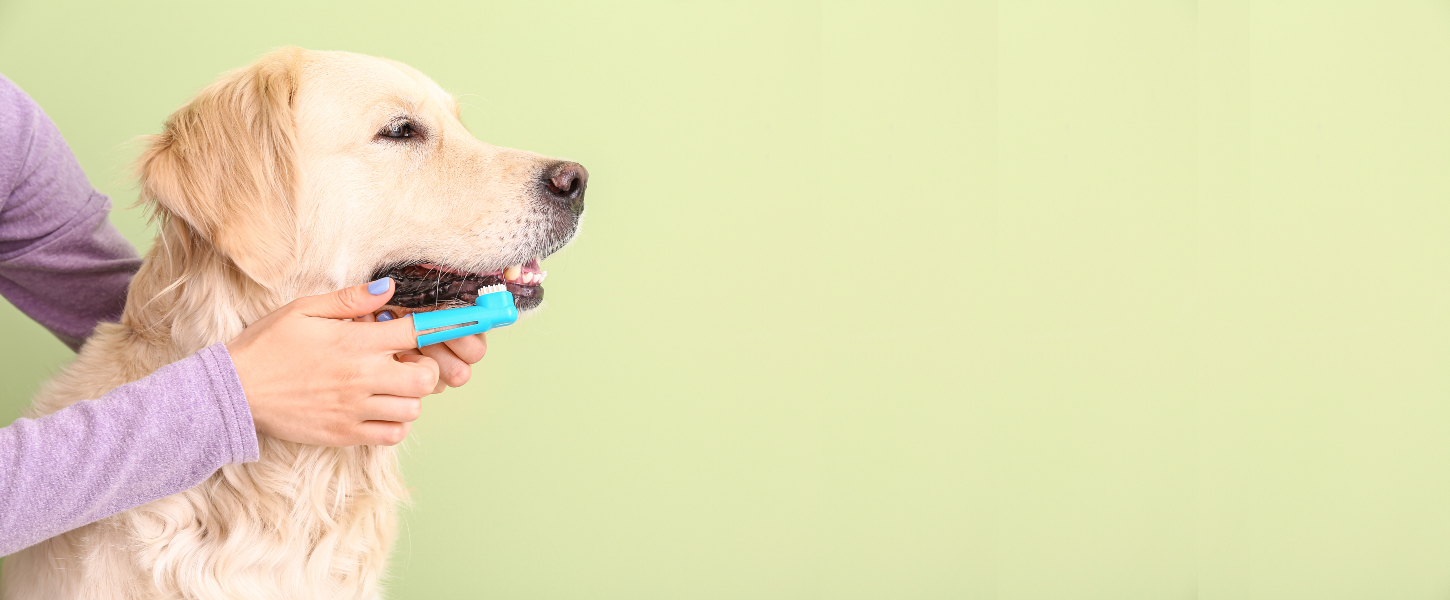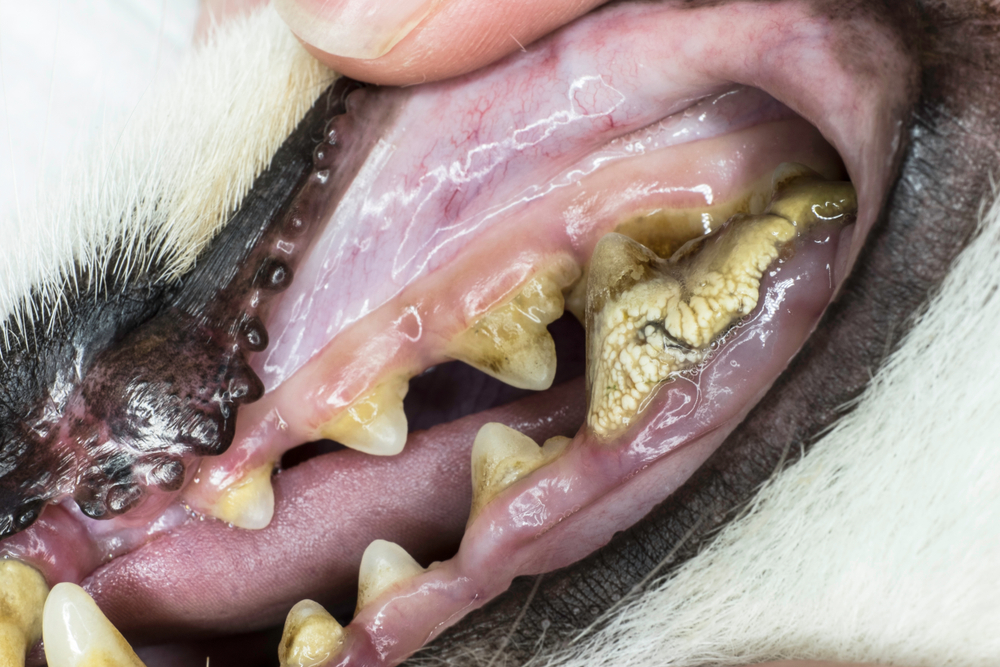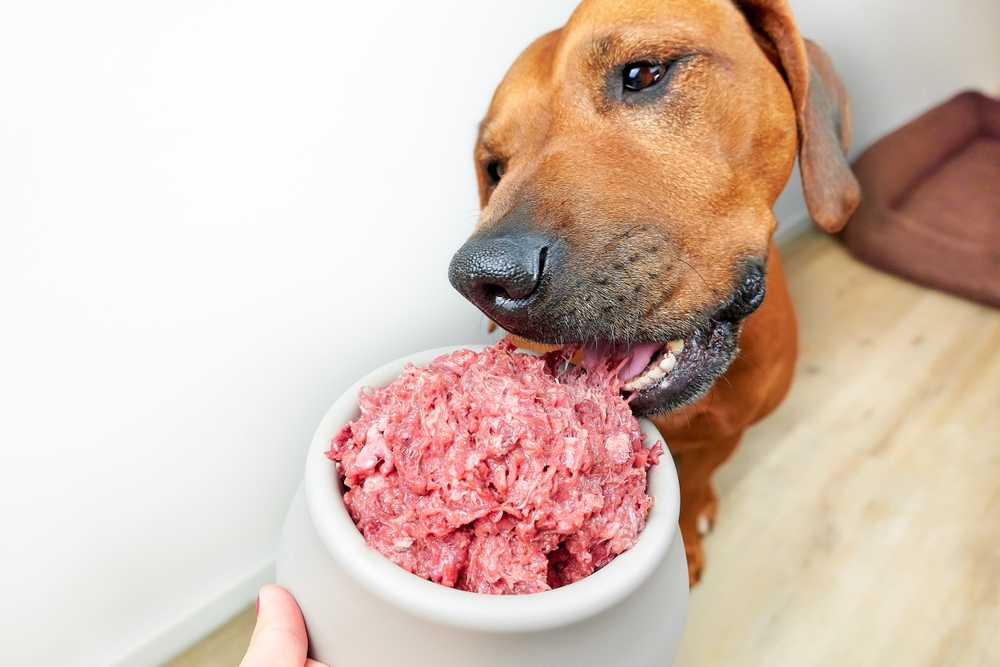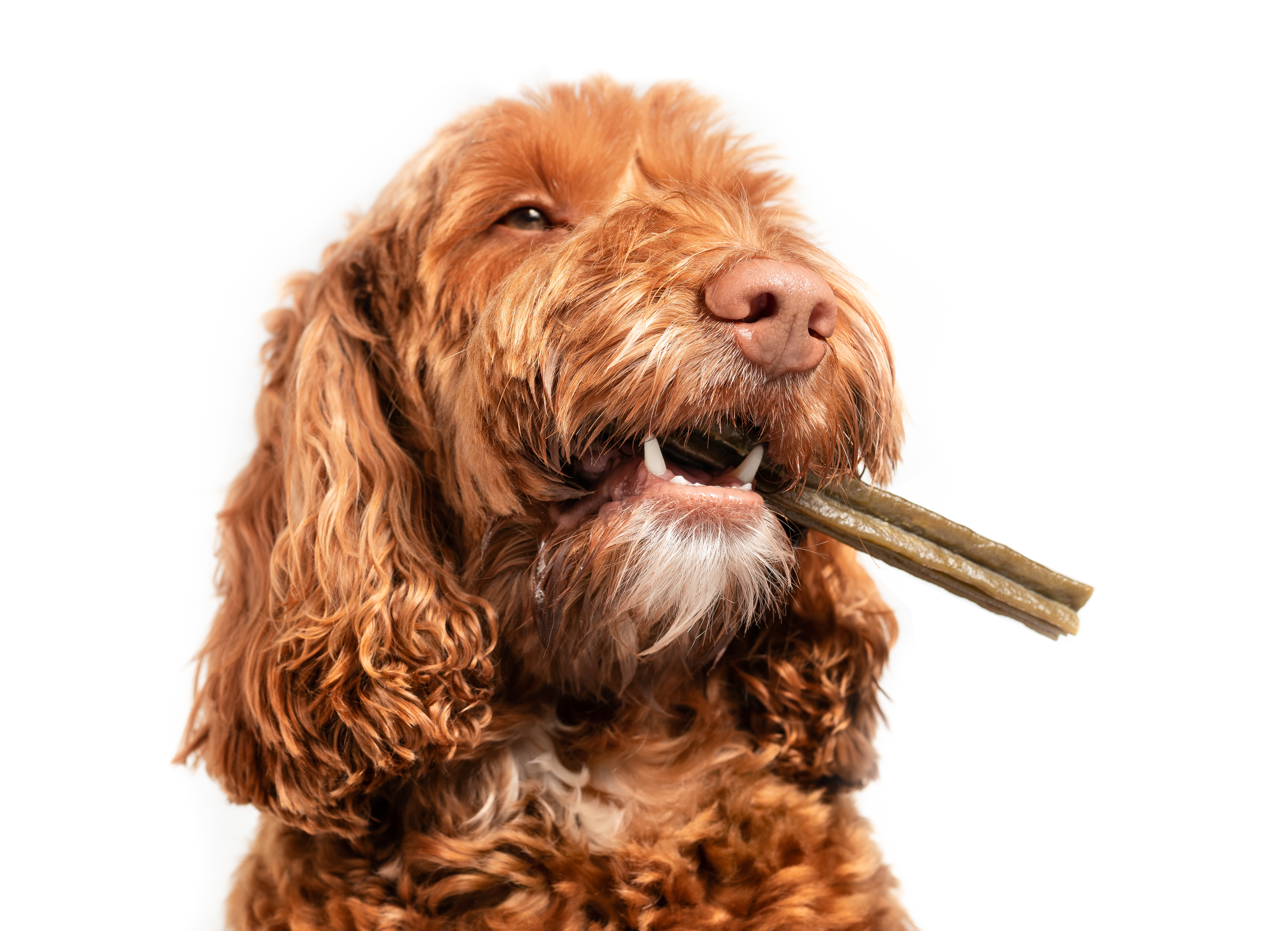Does a Dog's Diet Impact Their Dental Health?
August 01, 2024 | By David Jackson
I think most dog owners would agree, keeping up with your dog's dental care can be a bit of a battle. The challenge begins with the attempt to get your dog to actually sit still and allow you to look into their mouths. Next, it's understanding the best practices for maintaining your pup's oral hygiene. And with so many different dental products on the market, it can get pretty overwhelming, even for the most experienced dog owners.

But all of that aside, there's one question that occasionally gets overlooked: does what we feed our dogs affect their dental health? And the simple answer is yes. What your dog eats plays a crucial role in their overall health, including the condition of their teeth and gums. Let's dive into the details and explore how different aspects of a dog's diet can impact their dental health.
But How Important Is My Dog's Dental Hygiene?
Before we get into the specifics, I want to touch on why dental health matters. Poor dental hygiene in dogs can lead to a range of problems. Although on the surface, bad breath may seem like the worst of your problems, this is just the start. Unless well maintained, your dog's bad breath can quickly turn into more serious issues, such as painful teeth, gum disease, tooth loss and infections that can spread to other parts of the body. Plaque and tartar buildup not only cause discomfort and make eating difficult, but they can also result in bacterial infections that enter the bloodstream and affect vital organs like the  heart, liver, and kidneys.
heart, liver, and kidneys.
Keeping your dog's teeth clean isn't just about fresh breath; it's about their overall well-being. A healthy mouth means a healthier, happier dog, and regular dental care is essential to prevent these serious health issues down the line. Ensuring good dental hygiene can add years to your dog's life, making it a key aspect of responsible pet ownership.
How Diet Affects Dental Health:
Dry vs Wet vs Raw
- Dry Food (Kibble): It is often said that dry dog food can help keep your dog's teeth clean. But this isn't quite the case. Although kibble does have a slight abrasive effect, the thought that it can scrape plaque away is a slight exaggeration. So whilst yes, it can help slightly, it's definitely not a substitute for regular dental care like brushing. By relying solely on dry dog food you risk potentially introducing your pet to excessive carbohydrates, that can promote gum disease.
- Wet Food: On the other hand, wet food doesn't provide any cleaning action. It is, however, often lower in carbohydrates and free from many of the fillers that can contribute to plaque build-up.
Raw Food: Raw dog food diets have been praised by some as beneficial for dental health. Like wet food, raw diets typically have lower carbohydrate content, reducing the likelihood of plaque formation.
 One of the main arguments in favour of raw diets is the inclusion of raw, meaty bones. Chewing and gnawing on these bones can help scrape away plaque and tartar from a dog's teeth, much like a natural toothbrush. The mechanical action of gnawing can be effective in keeping teeth cleaner and gums healthier.
One of the main arguments in favour of raw diets is the inclusion of raw, meaty bones. Chewing and gnawing on these bones can help scrape away plaque and tartar from a dog's teeth, much like a natural toothbrush. The mechanical action of gnawing can be effective in keeping teeth cleaner and gums healthier.
Carbohydrates and Sugars
As mentioned above, foods high in simple carbohydrates and sugars can stick to your dog's teeth and contribute to the formation of plaque and tartar. These carbohydrates can be found in various types of dog foods. This is why It's important to check the ingredient list and choose foods with lower carb content and no added sugars. You can quickly and easily do this via our Dog Food Directory.
Chewing and Dental Treats

Providing your dog with appropriate chew toys and dental treats can also support their dental health. These products are designed to reduce plaque and tartar build-up. But it is important to do your research and choose carefully when shopping for dental style treats. Many of the most popular dental chews on the market are packed full of carbohydrates and low grade ingredients, with little to no clarity on their labels. In fact, disappointingly, some of the lowest scoring dog treats in our Dog Food Directory are dental style treats.
Because of this, you may want to opt for natural treats such as pizzles, chicken feet, rabbits ears or even just plain raw carrots (just to name a few.) One thing to bear in mind, is if your dog is already experiencing dental issues, hard chews can be an uncomfortable, inappropriate choice of treat. You also want to be cautious when selecting appropriate chew toys and treats for puppies and older dogs. Always feed the dog in front of you and choose your style of dental chews wisely.
The Role of Supplements
There are also various dental supplements available that can be added to your dog's diet. These include powders, liquids, and treats designed to reduce plaque and support gum health. Whilst you will find various choices of pre-mixed dental supplements, both in pet shops and online, you can often buy the ingredients separately and for a much cheaper price. For a detailed explanation of this watch this 40 second TikTok video where we discuss Plaque Off and the ingredients used.
Final Thoughts
Despite the challenges, maintaining regular dental care is vital to prevent problems such as bad breath, gum disease, tooth loss and eventually much more serious health matters. And it's important not to overlook the impact what you feed to your dog could be having on their overall dental health. And whilst diet alone won't keep your dog's teeth perfectly clean and healthy, making mindful food choices can certainly help reduce the risk of dental problems. This, combined with regular dental care and vet visits, you can ensure your dog maintains a healthy mouth of teeth.
As always, we value the input of the All About Dog Food community. If you have any tips, experiences, or questions about your dog's dental health, please leave a comment below or start a discussion in our forum.
Stay informed, and take care of those precious canines!
|
gemma •9 months ago
Has anyone tried LUCAA+ Probiotic Pet Dental Care? I've been using it for 3 weeks with no noticeable improvement yet and my dog has only got some staining on her back teeth. Perhaps I haven't been using it long enough, but before and after photos of a dog's teeth used to advertise most of these supplements always seem a bit of a con to me and too good to be true, although this one wasn't extreme.Gordon Robertson •9 months ago
If bones effectively removed plaque and tartar then it would be a good idea for humans to gnaw at them. A dogs teeth should be brushed daily to remove all plaque.